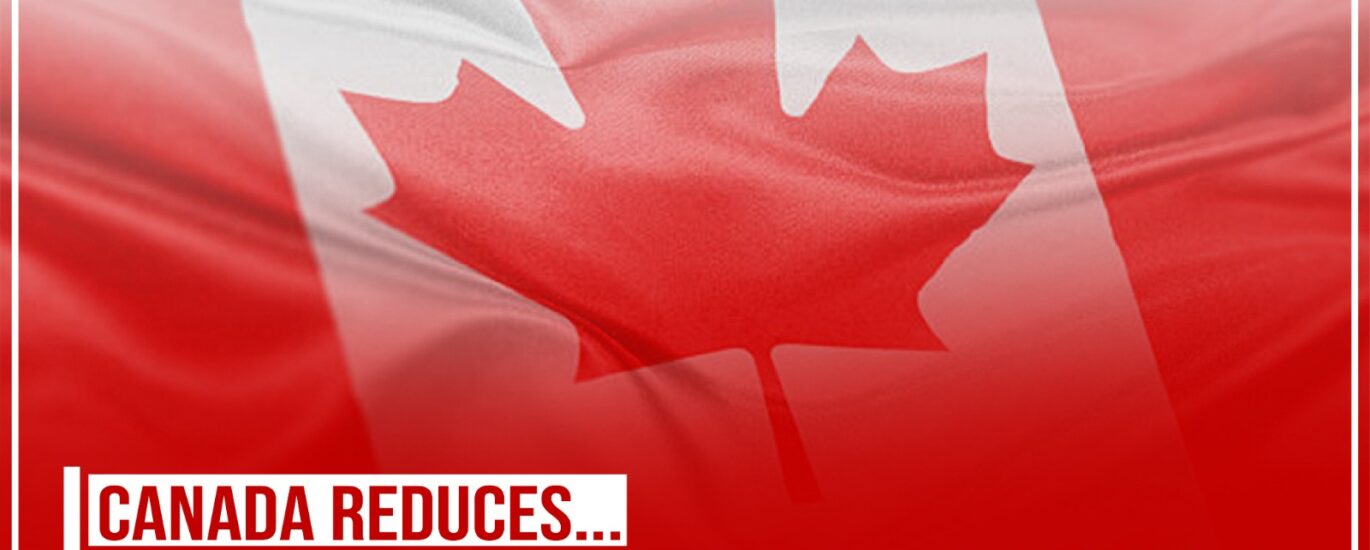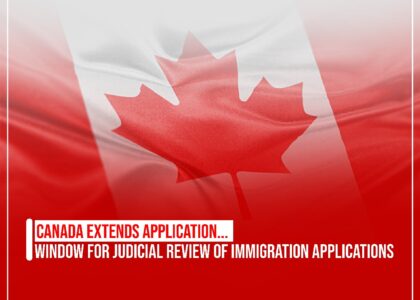In a significant move that is expected to affect the number of international students entering Canada, the Canadian government has announced a 10% reduction in the issuance of international student permits for the year 2025. This marks the second consecutive year of a cap on international student permits, a measure introduced to address the growing pressures on the country’s housing, healthcare, and public services. The reduction is part of broader efforts to manage rapid population growth, which has been fueled in large part by immigration, and ensure that Canada’s infrastructure can keep pace with demand.
According to a statement released by the Canadian immigration ministry on January 25, 2025, Canada plans to issue 437,000 study permits in 2025. This represents a significant decrease from the 650,000 study permits granted in 2023. The decision to limit the number of international students is largely driven by concerns over the nation’s housing crisis, escalating healthcare challenges, and rising costs associated with managing such a large influx of people into the country.
Why Canada Is Reducing International Student Permits
Canada’s decision to cap the number of study permits follows a trend of rising immigration levels in recent years, which has led to increased pressure on various public services and infrastructure. Housing, in particular, has become a focal point of concern, with many cities experiencing severe shortages and soaring prices. As the population grows due to immigration, the demand for housing, healthcare, education, and other essential services has reached a point where it is becoming increasingly difficult to meet the needs of both domestic residents and newcomers.
International students, while contributing positively to the Canadian economy, particularly through higher tuition fees, are seen as one of the contributing factors to the strain on these public systems. The government has responded by placing a cap on the number of international student permits issued each year, and the reduction in 2025 is a continuation of this policy.
The Impact of the Reduction
The 2025 study permit cap marks a 10% reduction compared to 2024, when Canada issued 487,000 permits. In 2023, over 650,000 permits were issued, resulting in more than a million international students residing in Canada—approximately three times the number of students who entered the country a decade ago. While these students significantly contribute to the country’s economy, the reduction in the number of study permits reflects the government’s need to manage growth more carefully, ensuring that services and resources are not overwhelmed.
Government’s Strategy: Balancing Immigration and Public Services
Canada has long been a popular destination for international students due to its world-class education system and multicultural society. The country’s immigration policies have made it one of the leading global destinations for students pursuing higher education abroad. However, the rapid increase in the number of international students has raised concerns about the ability of the country’s infrastructure to accommodate such a large influx.
Prime Minister Justin Trudeau, who has announced plans to step down in March 2025, has been vocal about his commitment to managing immigration in a way that benefits both newcomers and existing residents. As part of his efforts to balance these interests, the government has decided to reduce immigration levels in response to a decrease in public support for higher immigration, as indicated by recent polls. The international student cap is one of the measures aimed at managing this balance.
The Role of International Students in Canada’s Economy
Despite the reduced number of study permits, international students continue to play a crucial role in Canada’s economy. They contribute significantly to the country’s education sector, particularly through higher tuition fees, which are much higher for international students than for domestic students. This revenue is essential for funding educational institutions and supporting the broader economy.
Furthermore, international students often remain in Canada after completing their studies, contributing to the workforce in various sectors. Many stay on with work permits, helping to fill labor shortages in key industries. Their presence also promotes cultural diversity and strengthens Canada’s international connections.
New Requirements for International Students in 2025
As part of the efforts to streamline the process and ensure that only eligible students are granted permits under the new cap, Canada has introduced new requirements for study permit applicants. Most applicants for study permits will now be required to submit a Provincial or Territorial Attestation Letter, confirming that they are part of the federal government’s international student cap. This requirement is aimed at ensuring that applicants meet the specific criteria for the limited number of study permits available.
Additionally, for the 2025 academic year, students pursuing master’s or post-doctoral studies will also need to provide this attestation letter. This measure is designed to ensure that the students entering Canada under the study permit program are aligned with the country’s broader immigration goals and are contributing to the areas of study and research that are most beneficial to the nation’s economic development.
What This Means for Prospective International Students
For students considering studying in Canada in 2025 and beyond, the new study permit cap means there will be increased competition for limited spots. Applicants will need to meet the specific eligibility criteria and demonstrate that they are part of the provincial or territorial quotas. This makes it more important than ever for prospective students to work with knowledgeable immigration consultants who can guide them through the application process and ensure that they meet all the necessary requirements.
Moreover, students interested in applying for study permits should be aware of the impact that the reduction in permits may have on their chances of being accepted. They should ensure that they submit their applications well in advance and that they meet all of the new requirements to increase their chances of securing a permit.
Canada’s Ongoing Immigration Strategy
The reduction in international student permits is part of a larger trend of managed immigration. While Canada remains committed to welcoming talented individuals from around the world, the government is taking a more cautious approach to ensure that immigration levels align with the country’s ability to provide essential services and infrastructure. By managing the number of international students and other immigrants entering the country, Canada hopes to create a more sustainable environment for growth while maintaining its status as a top destination for education and immigration.
For those interested in studying in Canada or exploring other immigration opportunities, it is important to stay informed about the latest updates to the country’s policies. Working with a professional immigration consultant can help you navigate the application process, ensure you meet the eligibility criteria, and increase your chances of success.
Conclusion
Canada’s decision to reduce international student permits for the second consecutive year reflects the government’s ongoing efforts to manage population growth and alleviate pressure on housing, healthcare, and other public services. While the reduction in permits may affect the number of students entering the country, international students remain a key driver of Canada’s economy and contribute significantly to the country’s educational and labor sectors.
For prospective students, understanding the new requirements and being prepared for the application process is essential. If you are considering studying in Canada, working with an experienced immigration consultant can help you navigate the changes and improve your chances of securing a study permit in the current climate.
Stay informed, plan ahead, and ensure that you meet the new eligibility criteria to make the most of Canada’s educational opportunities.





